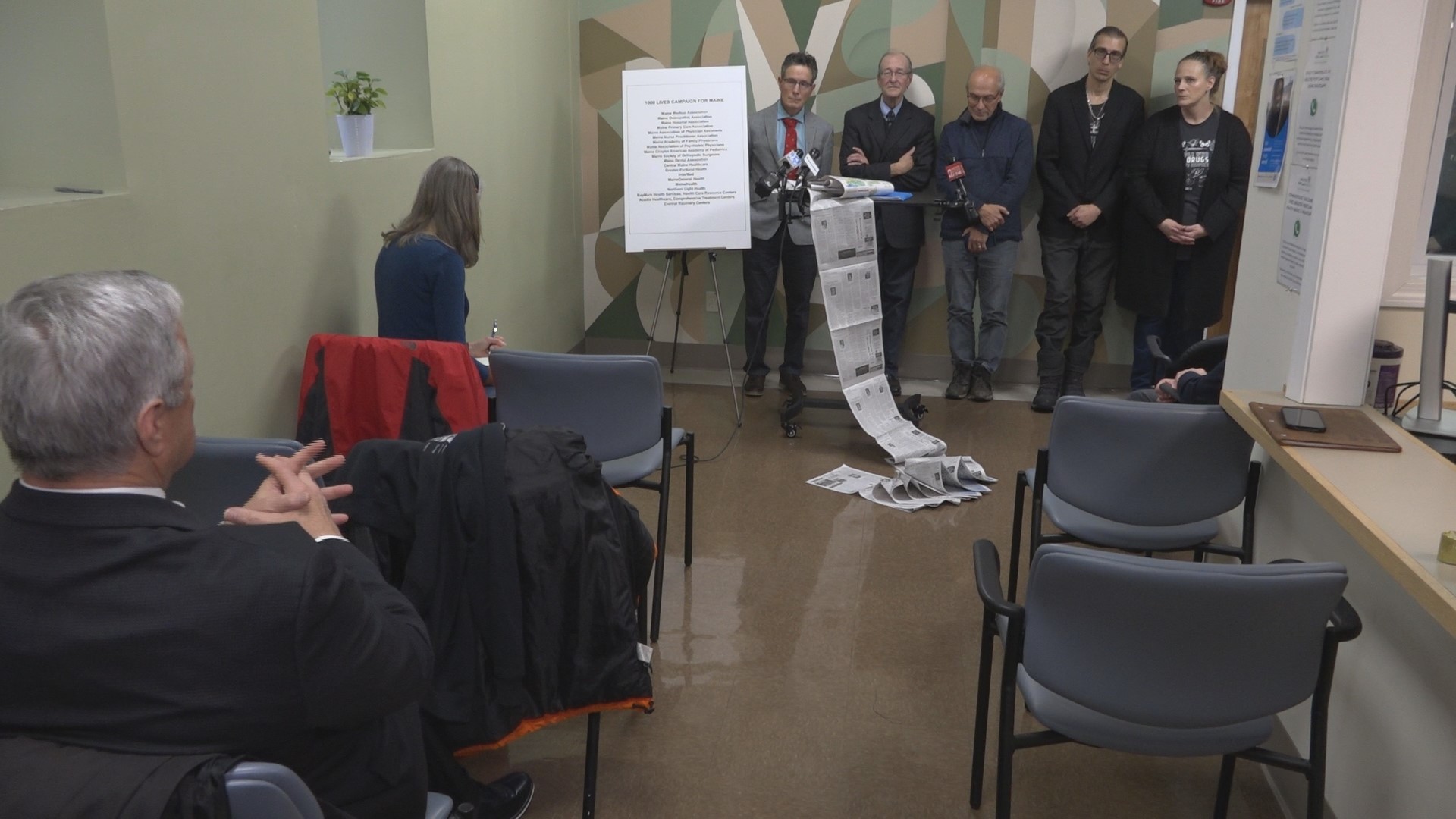PORTLAND, Maine — Midday Monday, amid whipping winds, some Maine medical professionals huddled together in a crowded space on Oxford Street in Portland. Even the most extreme of December weather couldn't keep them from making an announcement that, to many on the frontlines of the opioid epidemic, is exciting.
On Jan. 1, 2024, the 1,000 Lives Campaign for Maine will officially launch. This initiative is designed to reduce the number of opioid-related deaths in our state by 1,000 over the next five years. It's an effort happening as a collaboration among clinicians, health care organizations, and the state of Maine.
"The '1,000 Lives Campaign' is about implementing certain elements of care everywhere in Maine to try to reduce the risk of death," Erik Steele, a family physician and the immediate past president of the Maine Medical Association, said.
Steele said he wants to see emergency departments, hospitals, and primary care practices in every corner of Maine offering compassionate help to anyone struggling with substance use disorder who wants it. He said that could include measures like prescribing buprenorphine (similar to suboxone) to people to help treat their addiction to opioids.
"It’s estimated that maybe only about one in eight people with problems with opioids are actually getting care," Steele said.
Steele said he also wants to see providers in all avenues of care working together to make sure patients don't fall through the cracks and are able to complete their treatment. He said it's important for people to recognize that anyone can fall victim to opioids.
"It’s really kind of an equal-opportunity illness," Steele said, later adding, "Any one of us can shake the family tree, and out of it will fall somebody who has a substance use disorder. It affects all of us."
Shay Dufour is one of those people. She and her husband, Zachary Moore, spoke on Monday to the room to relay their personal experiences with substance use disorder.
“Back in 2010, I was a poly-substance user living in Westbrook with my husband," Dufour said. "My addiction to opiates and other drugs was totally out of control, and I needed dire help."
Dufour said after she was evicted, she ended up finding the assistance she needed through Greater Portland Health. She said the support they offered her is what she believes other people who are struggling need, too.
"I’m a firm believer that these types of integrated and comprehensive programs are of the upmost importance in fighting the overdose death rates and homeless percentage here in our great state of Maine," Dufour said.
Gordon Smith, the director of opioid response for the state of Maine, also made an appearance Monday. He said our state lost 723 people to overdoses last year. As of October 2023, that number is down 11 percent, but Smith said that's still not enough progress.
"We’re not the best. We’re not the worst. We’re about in the middle," Smith said of Maine's opioid crisis compared to other states.
Smith said the "1,000 Lives Campaign for Maine" isn't receiving any funding from the state, but he's supporting it because it's in line with what he has been trying to do, as part of Gov. Janet Mills' administration.
"When a person does overdose, we have to do everything we can to keep them alive and give them another chance at recovery," Smith said, later adding, "Many of our [state] grants and programs are complementary to what [this campaign is] doing.”
Smith is also one of 15 members on the Maine Recovery Council, established to decide how to distribute opioid settlement funds in Maine. He said last week, the council voted out $9 million unanimously. Some recipients included youth development organizations around our state to strengthen prevention work and Piscataquis County to establish its first recovery community center.
Smith said the next council meeting is scheduled for Jan. 11.

